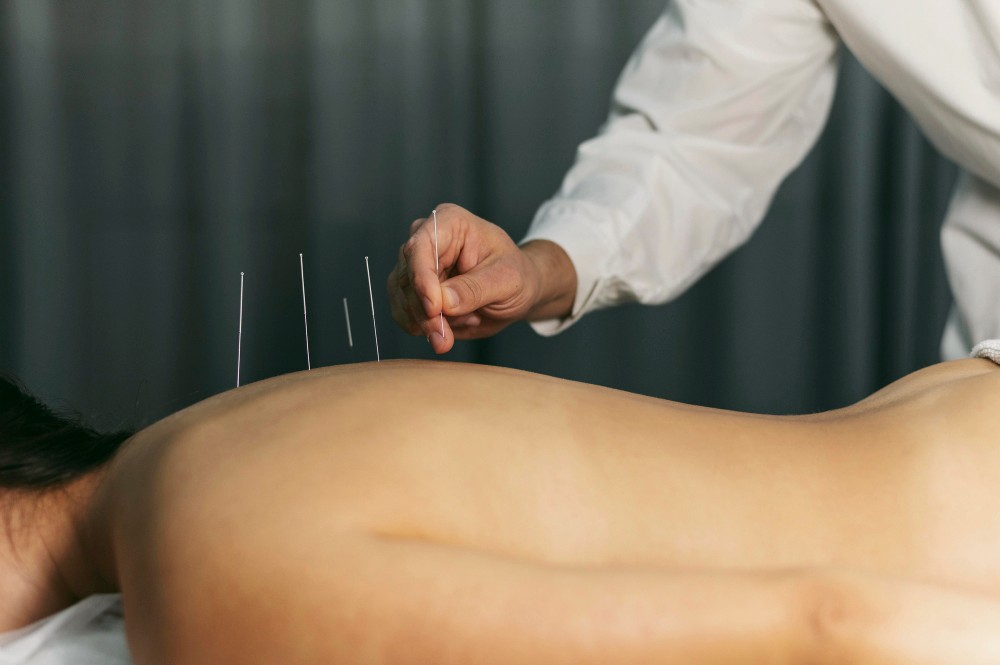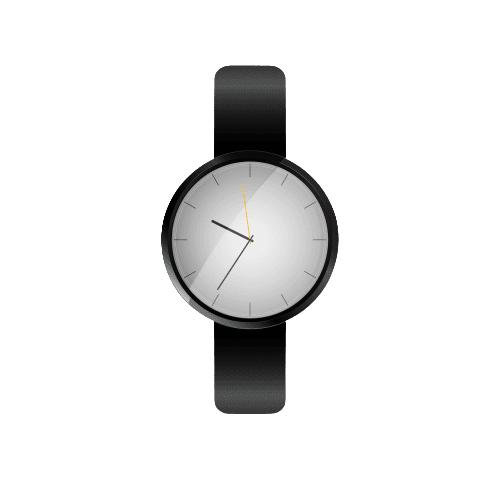Body
Acupuncture Uncovered: The Ancient Therapy with Modern Benefits

Team NxtClue
Content
|
3 mins
|
Aug 21, 2024

0:00/1:34
Don't have enough time to read?
Listen

The Alternate Healing Therapies: Part 1 - Acupuncture
What is Acupuncture?
Acupuncture is a centuries-old healing practice rooted in Chinese culture that aims to free the body from various physical and mental ailments. The process involves placing fine needles at specific points on the body to control the flow of the life energy, Chi. Originally practiced only in China, acupuncture has gained worldwide popularity due to its perceived benefits.
How Does Acupuncture Work?
Acupuncture aims to release the flow of Chi by stimulating specific pressure points. Scientists believe that acupuncture works because inserting needles into the body releases endorphins and alters brain activity. However, some skeptics argue that its effects are purely placebo.
Is Acupuncture Really Effective?
Like all treatments, even those considered highly effective, such as allopathy, acupuncture has its share of side effects along with benefits. Here’s a clear description of both:
Pros of Acupuncture
Relief from Pain and Stress: Acupuncture can make you feel energized and relaxed after just one session.
Mood Stabilization: It increases the secretion of serotonin, dopamine, and endorphins, which are vital for stabilizing mood and creating a feeling of well-being.
Helps with Various Conditions: It can potentially help with symptoms of nausea, poor digestion, sleep deprivation, fertility issues, migraines, etc.
Natural and Organic: Acupuncture doesn't involve chemicals or drugs, making it a virtually organic treatment. Using disposable needles has become standard practice.
Painless Procedure: The treatment is virtually painless, with individuals feeling only a slight pinch. The ease of treatment depends largely on the therapist's expertise and experience.
Recognition by Reputed Institutions: Recognized by reputed institutions in the United States such as Harvard Health, Mayo Clinic, and the National Institute of Health.
Cons of Acupuncture
Temporary Symptom Worsening: Certain symptoms may temporarily worsen before improvement. This is infrequent but worth noting.
Possible Achiness or Fatigue: Individuals with severe conditions may experience achiness or fatigue, which typically subsides as treatment progresses.
Requires Multiple Sessions: Acupuncture may not be immediately successful; benefits are often noticeable after the 5th or 6th session.
Physiological Changes: Some may notice physiological changes after a few sessions. These changes are usually positive but may take some time to get used to.
Occasional Nausea or Fatigue: In rare cases, individuals may experience nausea or strong fatigue, especially if they haven't eaten properly before a session.
Overall, it's clear that the benefits of acupuncture outweigh its cons, which are generally not severe. Stay tuned for the next part in this 5-part series on alternate healing therapies. The next therapy we’ll explore is Aromatherapy.
Download
Related Blogs

11 min
Body
Nutrition Tips for Better Health

Team NxtClue
|
26/08/24

11 min
Body
Stress Relief Through Fitness

Team NxtClue
|
26/08/24

11 min
Body
Weight Loss vs. Fat Loss

Team NxtClue
|
26/08/24

11 min
Body
Why Fitness Matters

Team NxtClue
|
26/08/24

I May Not Be the Menu, But I Can Still Guide You – I Know Some Shortcuts!
With us
Decision is yours
Without us

Copyright © 2024 NxtClue | All Rights Reserved
0:00/1:34
Don't have enough time to read?

Listen

3 mins
Body
Acupuncture Uncovered: The Ancient Therapy with Modern Benefits

Team NxtClue
|
Aug 21, 2024
Download
The Alternate Healing Therapies: Part 1 - Acupuncture
What is Acupuncture?
Acupuncture is a centuries-old healing practice rooted in Chinese culture that aims to free the body from various physical and mental ailments. The process involves placing fine needles at specific points on the body to control the flow of the life energy, Chi. Originally practiced only in China, acupuncture has gained worldwide popularity due to its perceived benefits.
How Does Acupuncture Work?
Acupuncture aims to release the flow of Chi by stimulating specific pressure points. Scientists believe that acupuncture works because inserting needles into the body releases endorphins and alters brain activity. However, some skeptics argue that its effects are purely placebo.
Is Acupuncture Really Effective?
Like all treatments, even those considered highly effective, such as allopathy, acupuncture has its share of side effects along with benefits. Here’s a clear description of both:
Pros of Acupuncture
Relief from Pain and Stress: Acupuncture can make you feel energized and relaxed after just one session.
Mood Stabilization: It increases the secretion of serotonin, dopamine, and endorphins, which are vital for stabilizing mood and creating a feeling of well-being.
Helps with Various Conditions: It can potentially help with symptoms of nausea, poor digestion, sleep deprivation, fertility issues, migraines, etc.
Natural and Organic: Acupuncture doesn't involve chemicals or drugs, making it a virtually organic treatment. Using disposable needles has become standard practice.
Painless Procedure: The treatment is virtually painless, with individuals feeling only a slight pinch. The ease of treatment depends largely on the therapist's expertise and experience.
Recognition by Reputed Institutions: Recognized by reputed institutions in the United States such as Harvard Health, Mayo Clinic, and the National Institute of Health.
Cons of Acupuncture
Temporary Symptom Worsening: Certain symptoms may temporarily worsen before improvement. This is infrequent but worth noting.
Possible Achiness or Fatigue: Individuals with severe conditions may experience achiness or fatigue, which typically subsides as treatment progresses.
Requires Multiple Sessions: Acupuncture may not be immediately successful; benefits are often noticeable after the 5th or 6th session.
Physiological Changes: Some may notice physiological changes after a few sessions. These changes are usually positive but may take some time to get used to.
Occasional Nausea or Fatigue: In rare cases, individuals may experience nausea or strong fatigue, especially if they haven't eaten properly before a session.
Overall, it's clear that the benefits of acupuncture outweigh its cons, which are generally not severe. Stay tuned for the next part in this 5-part series on alternate healing therapies. The next therapy we’ll explore is Aromatherapy.
Copyright © 2024 NxtClue | All Rights Reserved

I May Not Be the Menu, But I Can Still Guide You – I Know Some Shortcuts!
With us
Decision is yours
Without us

Copyright © 2024 NxtClue | All Rights Reserved

I May Not Be the Menu, But I Can Still Guide You – I Know Some Shortcuts!
With us
Decision is yours
Without us

Related Blogs